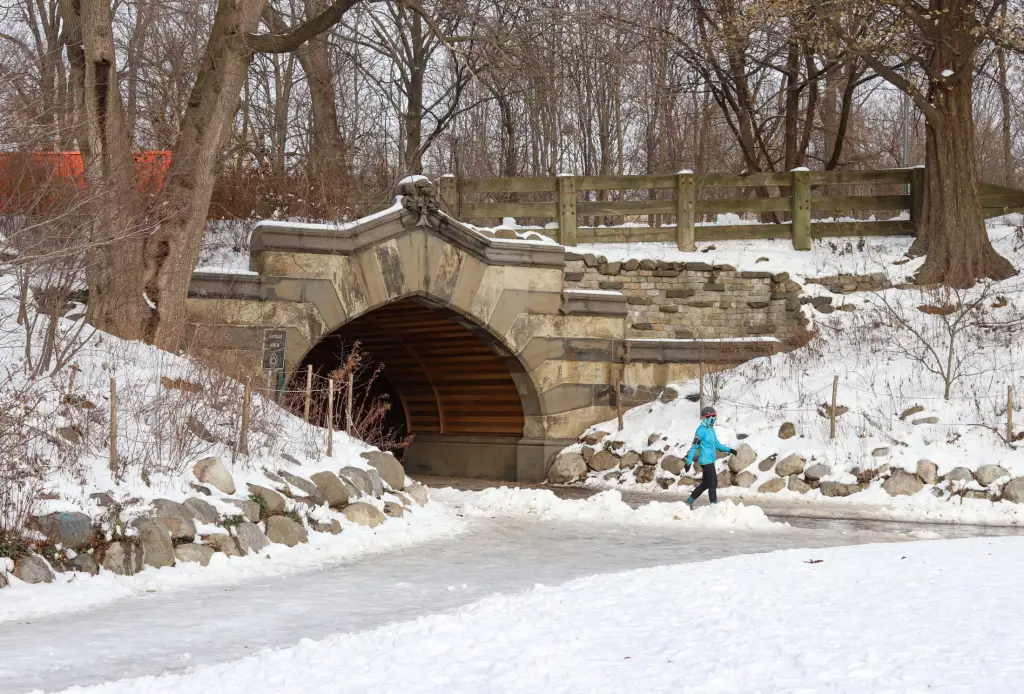House of the Day: Stretching It in the Slope
Is it just us or does $1.8 million seem like a lot of dosh for a three-story house of nice, but certainly not extraordinary, quality? We’re sure the block is a good one as the ad says, but both the scale and finishes of the house look modest by Park Slope standards. Or maybe this…

 Is it just us or does $1.8 million seem like a lot of dosh for a three-story house of nice, but certainly not extraordinary, quality? We’re sure the block is a good one as the ad says, but both the scale and finishes of the house look modest by Park Slope standards. Or maybe this is one of those cases where it would be worth it to hire one of those consultants to touch up the interiors–the Ikea furnishings certainly detract from the necessary gravitas needed to pull of this price (especially with the top two floors leased through the end of 2006!). Are you folks who know the Park Slope market with us on this one or is our lack of sleep starting to show?
Is it just us or does $1.8 million seem like a lot of dosh for a three-story house of nice, but certainly not extraordinary, quality? We’re sure the block is a good one as the ad says, but both the scale and finishes of the house look modest by Park Slope standards. Or maybe this is one of those cases where it would be worth it to hire one of those consultants to touch up the interiors–the Ikea furnishings certainly detract from the necessary gravitas needed to pull of this price (especially with the top two floors leased through the end of 2006!). Are you folks who know the Park Slope market with us on this one or is our lack of sleep starting to show?
10th Street [Corcoran]





It was sarcasm, in case you couldn’t figure it out.
Just the previous poster’s mention of brownstones losing 40% in the near future removes all of that poster’s credibility. Even in the bust of the late 80’s , real estate pricesdidn’t drop that much.
Sorry bigbubba,
I don’t mean to offend you, but if you’re betting that everyone has a $million bucks to spare to stave off issues maybe you should get back into the workplace and face reality. This country including NYC has the highest debt levels ever particularly in mortgages. Read the wall street journal once in a while. Secondly, if there was so much cash lying around why do 30% of us take out arms. I already know your answer. Everybody has the cash to cover it in the event rates go higher so why not take advantage of short term rates. Keep thinking like this buddy. Most people in ny like other places are buying homes with cash from their previous home. At some point the youngest who might not have been as fortunate as you simply don’t have the cash to afford the downpayment. And if you think you’re brownstone will still hold value more than a classic six or seven in manhattan…brooklyn is not that hot and will always play second fiddle to manhattan whether we like it or not. It constantly amazes me when the wealthy speculate that everyone has enough in reserves to cover any potential losses so they’ll never lose anything. Where you sit in the hierarchy is dependent on some 25 year old saving enough to afford that first apartment to buy from the person so he can afford the two bedroom as so on until it gets to you. But don’t worry about it, you can obviously afford the 40% haircut on your brownstone down the road. Have another single malt on me…Cheers
Sorry, but that long-winded, rambling, bubble post made absolutely no sense. And BTW, I used to be a trader, so I do understand markets. And for the record, what goes up does not necessarily have to come down.
I think, what we need to remember is that market prices are marginal prices – it’s the price of last house sold. Most homeowners did not pay anything near todays prices. Most homeowners are not sitting on mountains of debt. Yes, rising rates will dampen some enthusiasm, and yes some folks with ARMs pushed to the max will default – there will be some bloodletting somewhere along the way – and this can be a healthy thing for markets – to weed out the weak and wimpy investors.
But, I have to tell you, most people buying brownstones near me are using cash. Most of these purchases are not using more than 50% debt, if even. And well-heeled buyers using ARM’s are not necessarily going to go bankrupt when rates rise. Me, I plan to pay mine down if are too high in a few years. Or I’ll refi with whatever the latest product is.
The thing about NYC is that most people are putting up decent amounts of cash – you have to just to get into a co-op, and if you can afford a brownstone in PS, well chances are you’ve got a cool million to put down.
Like I said before, the bubble – if there is one, will pop differently in different areas, for different housings, and different kinds of buyers.
I did not buy for double-digit increases – that was a bonus. I bought because I wanted a certain type of housing, I wanted a flexible investment, and I am confident of strength of the market over a 10-15 years time horizon.
Ok folks,I am a Broker working in Manhattan but living in PS.I have some new stats from Millersamuel.com they only deal with Manhattan real estate but they can tell you anything you could ever need to know about market trends and prices.Here are some new stats for Feb. In Manhattan last month there were 3900 apts. for sale,the average negotiability factor was 0.99%,the prices of an average apts. were, studios 346k,1br 540k,2br 1.072m,and a 3br were 1.642m.
I purchsed my 2 family 7 years ago, and the price of 575k set the record for my street,and all the neighbors thought I was the biggest fool,for “paying up”.I also thought it would take years before i would ever be able to break even on the house.Well its now worth moer than 3x what i paid.
And the reason i work in Manhattan is even with the lack on inventory there, its still better than Brooklyn. I have been to open houses here where the home owners don’t even make the beds, house is allmost falling apart and still people killing each other to put in a winning bid.
So unless inventory catches up with demand people will pay up for anything that is still standing.
The higher prices go the further they fall. If people were saying the market was over priced 2-3 years ago than the correction will just be larger, not unlike Nasdaq 5000. Its really been 10-15 years since the last crash. Talk to people who invested in the late 80’s in neigborhoods like Alphabet city. They did well if they held onto it, but if you have to sell, you get screwed. Anybody trade bonds? Same idea. As a bond’s yield goes up the price falls. It doesn’t matter to you if you hold the bond for the term, but if you have to sell you’re going to pay dearly. The risk of arms (which wasn’t a concern in any other real estate crashes) is that your fixed payment at some point comes up and if you HAVE to sell you’re in trouble. If you’re paying 4% and in three years you are suddenly paying 8%, and you have a second mortgage that’s variable, and say you its also interest only…you’re life is going to become very very painful, unless you just made partner at a big law firm or something similar. Some other common sense to remember…someone has to buy the studios and 1 bedrooms from those who want to cash out and buy that townhouse in brooklyn. As interest rates rise, I doubt the newly minted college grads with a couple years out of college and living with four friends just to afford rent are going to have 100k saved to plunk down on that one bedroom. That’s where the macro economic environment puts a damper on even the best neighborhoods around prospect park. Lastly, nyc can be an incredibly volatile real estate market. Where else can you so easily just find an apartment or townhouse and just rent it immediately? One cannot argue that park slope is stable market if its sustained double digit price increases…that’s not stability that’s volatility and you’ll realize it when you’re on the other end of that equation. The weak current rental market also puts a huge dent in the theory that there is more demand than supply. There is a supply of housing its just that people are taking advantage of 40 year low interest rates and buying versus renting…there is a choice and when that cheap financing isn’t available we will all be forced to rent like in the late 90’s. Remember, interest rates affect nearly 100% of the market since most have some sort of debt on their house (I might add the highest levels ever) while a recession affects 2-3% of the population who suddenly lose their jobs. Yes, yes, bankers on the street get a $million dollar bonus versus at $2million bonus, but again this is a very small portion of the population. Most people who make 200k a year will continue to and when their mortgage payment doubles, they’ll have to sell. I can’t think of one reasonable argument that makes any sense of why this market would continue to go up except for the those resilient optomists who still think its a good investment driving the market higher.
Although I am a homeowner, with a substantial vested interest in an escalating r.e. market, I think that equilibrium would not be a bad thing for the market. In fact, I’m glad to see a little push back from buyers. It adds a degree of rationality to the market – and the more rationality we have, the better the possibility that we can see a sustained market. Irrational exuberance can rapidly turn on a dime and kill the goose that laid the golden egg. A decent supply/demand balance in which prices stabilize would be best for us all.
The reason I think we are at the top of the market is that I live in a pre-war coop in Manhattan. Every time an apartment comes on the market, the broker/seller tests the limit of how much higher they can ask for it, compared to a similar unit which recently sold. FINALLY a broker has overshot and priced too high and no one is biting. I think the price will drop. The philosophy up until now had been to price higher and higher but now a limit has been set. We may not be looking at a freefall–just prices coming down 20 percent or so?
“You, on the other hand, seem to have something invested…”
Nope, same boat. Homeowner in Bklyn for years and years — wd take practically the collapse of the US economy to wipe out my gains, and I’d still have a house.
I think we’re agreed that buying with the expectation of double-digit gains in a year is stupd, anytime. But I also don’t see the logic in some of the posts below — by others, I assume — that boil down to: “In a just and sane world, people like me should be able to buy a home of X size in Y quality location. Because I personally cannot afford to buy the type of home I feel entitled to, the market must therefore be headed for disaster.”